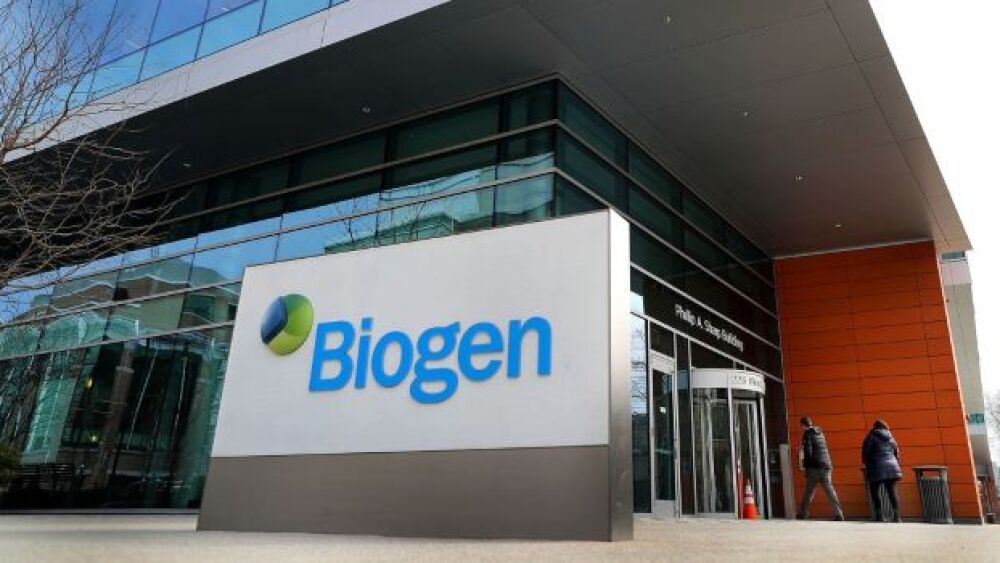Biogen has withdrawn its Marketing Authorization Application (MAA) for European approval of Aduhelm after regulators hinted data was not strong enough to support potential approval.
John Tlumacki/The Boston Globe via Getty
Aduhelm woes continue for Biogen. The company has withdrawn its Marketing Authorization Application (MAA) for European approval after regulators hinted the Alzheimer’s drug did not have sufficient enough data to support potential approval.
This morning, the Boston-based company disclosed the result of a meeting with the European Medicines Agency’s Committee for Medicinal Products for Human Use (CHMP). In that meeting, CHMP told Biogen that the data the company provided in support of potential approval was not strong enough to receive a positive opinion for Aduhelm (aducanumab). Biogen’s MAA had been under review after the company appealed to CHMP to re-examine the data it previously rejected last year.
In December, CHMP voted against authorization of the controversial Alzheimer’s drug. The committee, which is similar to an advisory committee at the U.S. Food and Drug Administration, raised concern over the efficacy of Aduhelm in early, mild Alzheimer’s patients.
Priya Singhal, head of global safety & regulatory sciences and interim head of research & development at Biogen, expressed thanks to those who supported the call for the CHMP’s re-examination of the Aduhelm data.
“We stand by the safety and efficacy of aducanumab, and we look forward to upcoming data readouts to continue to provide important information on the science of this new class of compound,” Singhal said in a statement.
The CHMP opinion is similar to the opinion reached by the FDA advisory committee that reviewed Aduhelm prior to the controversial June 2021 approval of the drug. Aduhelm was the first Alzheimer’s drug approved in the United States in 18 years. It was greenlit under the FDA’s accelerated approval program.
Since that approval in the U.S., Biogen has been beset by multiple problems, including a failure to gain commercial ground, as well as safety concerns. Biogen has also been hit with reports of the deaths of patients who took Aduhelm. At least four elderly adults prescribed Aduhelm died after taking the medication. That data is according to the FDA’s Adverse Events Reporting System (FAERS). The elderly patients had other complications beyond Alzheimer’s that could have been the cause of death, which is important to note. However, during clinical development of the Alzheimer’s drug, researchers observed cases of amyloid-related imaging abnormalities (ARIA-E), also known as cerebral edema, in some patients. The drug’s warning label points to possibilities of ARIA-E.
Those safety concerns, as well as questions of efficacy, led the Centers for Medicare and Medicaid Services to limit coverage of Aduhelm to patients who are participating in clinical trials. The decision announced earlier this month, severely limits the availability of the medication to the approximately 1.5 million people in the United States who have been diagnosed with mild Alzheimer’s-related cognitive decline, the indication for which it was approved. With such a limited number of Medicare-covered patients who can now receive Aduhelm in the U.S., there have been some questions as to whether or not the drug will be pulled from the market.
As Aduhelm’s woes continued, so too did the fortunes of Biogen. Last month, the company began to lay off about 10% of its staff, with some reports suggesting that the Aduhelm commercial team bore the brunt of the job cuts. In 2021, the company announced a $500 million cost-savings program but it was not believed that the savings will be entirely driven by headcount.
Biogen said it remains committed to research and development of new treatment options for Alzheimer’s patients.





